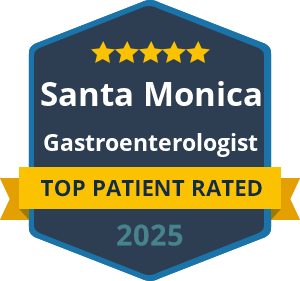
Digestive health plays a critical role in your overall wellness. When your gut isn’t functioning properly, it can affect everything from your energy levels to your mood, immunity, and even skin health. For patients suffering from conditions like Irritable Bowel Syndrome (IBS), small intestinal bacterial overgrowth (SIBO), or functional gastrointestinal disorders, one of the most effective strategies for relief may be the low-FODMAP diet.
At David P. Yamini, MD, with offices in Beverly Hills and Santa Monica, we work with patients throughout the greater Los Angeles area to create personalized, evidence-based treatment plans. For many of our patients struggling with chronic gut issues, the low-FODMAP diet is an essential tool in restoring comfort and improving quality of life.
What Is the Low-FODMAP Diet?
FODMAP stands for Fermentable Oligosaccharides, Disaccharides, Monosaccharides, and Polyols—a group of short-chain carbohydrates that are poorly absorbed in the small intestine. These compounds are found in many everyday foods such as onions, garlic, dairy, wheat, beans, certain fruits, and artificial sweeteners.
When FODMAPs aren’t digested properly, they ferment in the gut, causing symptoms like:
- Bloating
- Gas
- Abdominal pain
- Diarrhea or constipation
- Cramping
The low-FODMAP diet reduces or eliminates these foods temporarily to calm the gut, then systematically reintroduces them to identify personal triggers.
How a Low-FODMAP Diet Supports Gut Health
For patients with IBS and related disorders, this diet has been clinically proven to reduce symptoms. According to research published in the journal Gastroenterology, up to 75% of IBS patients experience significant relief when following a low-FODMAP protocol under medical supervision.
The benefits of a low-FODMAP diet include:
- Reduced inflammation and irritation in the digestive tract
- Improved nutrient absorption by reducing maldigestion
- Fewer GI symptoms like bloating, pain, and irregular bowel movements
- More balanced gut microbiota with targeted reintroduction phases
- Empowerment through dietary awareness and long-term symptom control
Who Should Consider the Low-FODMAP Diet?
While the low-FODMAP diet isn’t for everyone, it is especially helpful for individuals diagnosed with:
- Irritable Bowel Syndrome (IBS)
- SIBO (Small Intestinal Bacterial Overgrowth)
- Non-celiac gluten sensitivity
- Functional bloating or chronic gas
- Other unexplained gastrointestinal discomfort
At Dr. Yamini’s gastroenterology clinic, we carefully assess your symptoms, medical history, and test results before recommending this diet. We often work alongside registered dietitians to help guide patients through each phase, ensuring they stay nourished while identifying their food triggers.
Personalized Gut Health Plans at David P. Yamini, MD
Dr. Yamini believes that effective GI care requires more than a one-size-fits-all approach. That’s why we combine state-of-the-art diagnostics with individualized treatment strategies, including dietary modification, lifestyle counseling, and medication when necessary.
Our gut health approach may include:
- Comprehensive evaluation using endoscopy, colonoscopy, or imaging
- Functional testing for IBS, SIBO, and other motility disorders
- Tailored low-FODMAP planning, guided by your specific symptoms
- Ongoing support to help you transition from elimination to reintroduction safely
Serving patients in Beverly Hills and Santa Monica, Dr. Yamini is known for his compassionate care, advanced clinical training, and commitment to helping patients regain control over their digestive health.
Start Your Gut Health Journey Today
If you’ve been living with chronic digestive issues, you don’t have to accept discomfort as your normal. The low-FODMAP diet may be the solution your body has been asking for—and Dr. David P. Yamini is here to help you explore it safely and effectively.
Contact us today to schedule a consultation at our Beverly Hills or Santa Monica office, and take the first step toward better gut health and a better life.
Posted on behalf of




